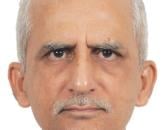
The starting as well as the central point of any healing is the faith that the patient has for the doctor. Implied in this is the patient's belief that the best treatment under the circumstances is being given to heal the disease he (or she) is suffering from. When the patient is content about this, he is prepared to wait for the disease to improve and to face whatever problems that may be encountered. The reassuring words from the physician strengthen his faith.
This faith that the patient has, can also involve faith in the institution or hospital where he is undergoing treatment. He believes that the place where he has come seeking relief would finally turn out to be good for him. Faith also matters in the case of a child or an invalid who believes that his parent or guardian is taking care of him. Faith is a deep seated feeling that leads to contentment and soothes the questioning mind.
Faith is essential for healing to take place regardless of the kind of treatment that is actually given. Without faith the mind is active and restless. This has repercussions on the immune system. The new field of psychoneuroimmunology [1-5] has validated the reality of mind-body-spirit medicine [6-9]. Where there is faith, the feeling is positive and this helps the body's built-in mechanisms of healing.
Therefore, a basic requirement for a successful health outcome would be to ensure that the care given at the healthcare setting strengthens the faith of the patient. The physician should live up to the faith reposed in him by arriving at the cause of the disease process just as the archer aims at the "bull's eye'. He needs to use his medical knowledge and clinical acumen to zero-in on the cause as soon as possible and start the appropriate treatment. The rest of the healing should be left to the body's built-in mechanisms; or in lay-man's term - to "nature'. It is unnecessary as well as virtually impossible to understand and "utilize' every mechanism underlying "nature'.
The central role of faith has implications on how medicine is taught to students. The young medico needs to learn the bio-medical aspects by acquiring a sound knowledge of the basic sciences. Even as he learns the basics of clinical examination, he needs to learn the art of dealing with the patient and his concerns. He needs to understand the central role of faith in healing and that his own medical knowledge and skill only help to supplement the body's built-in mechanisms of healing.
Post-graduate learning in medicine should concentrate on the student's ability to manage various disease conditions and lead to perfection of clinical acumen. Acquiring more and more theoretical knowledge of diseases without actual case management is of little use and would only serve to distract the budding physician from developing the habit of targeting the "bull's eye'. Sir William Osler's well-known emphasis on learning medicine by the bedside acquires added importance in the context of the new-found validity of mind-body-spirit medicine.
Presently modern medicine does not recognize the role of faith and the reality of mind-body-spirit medicine. Relying purely on the bio-medical aspects has led to a mechanical approach to diseases with loss of human touch. In addition there is uncertainty in the face of rapid medical advances, on how much of medicine is to be learnt and how best to evaluate the newly qualifying doctors.
The quality of health care would eventually depend on how well the roles of the health care professional, health care facilities, medical advances and medical education are synchronized to supplement and support the central nature of faith and the hidden reality of mind-body-spirit medicine. Otherwise the different aspects of health care would remain as disparate entities, one contradicting the other. For example, doctors may know the value of spending time with the patient and making a good clinical diagnosis, but may not be in a position to follow it in practice because of the necessity to make use of inappropriately built-up diagnostic facilities.
In these times of escalating health care costs and sorry state of national health services, quality health care for all is still attainable if the basics are got right.
References: (All references accessed on 2nd July, 2011)
1. Mausch K. The Psyche, the Immunological system and the problems of Health and Disease. Psychiatr Pol. 1995 Jul-Aug;29(4):435-41. http://www.ncbi.nlm.nih.gov/pubmed/7568516?ordinalpos=2&itool=EntrezSystem2.PEntrez.Pubmed.Pubmed_ResultsPanel.Pubmed_DefaultReportPanel.Pubmed_RVDocSum
2. Lutgendorf SK, Costanzo ES. Psychoneuroimmunology and health psychology: an integrative model. Brain Behav Immun. 2003 Aug; 17(4): 225-32. http://www.ncbi.nlm.nih.gov/entrez/query.fcgi?cmd=Retrieve&db=pubmed&dopt=Abstract&list_uids=12831823
3. Kiecolt-Glaser JK, McGuire L, Robles TF, Glaser R. Emotions, morbidity and mortality: new perspectives from psychoneuroimmunology. Annu Rev Psychol. 2002; 53:83-107. http://www.ncbi.nlm.nih.gov/entrez/query.fcgi?cmd=Retrieve&db=pubmed&dopt=Abstract&list_uids=11752480
4. Kiecolt-Glaser JK, Glaser R. Psychoneuroimmunology and cancer: fact or fiction? European Journal of Cancer. 1999 Oct; 35(11):1603-7. http://www.ncbi.nlm.nih.gov/entrez/query.fcgi?cmd=Retrieve&db=pubmed&dopt=Abstract&list_uids=10673969
5. Robinson FP, Mathews HL, Witek-Janusek L. Stress reduction and HIV disease: a review of intervention studies using a psychoneuroimmunology framework. J Assoc Nurses AIDS Care. 2000 Mar-Apr; 11(2): 87-96 http://www.ncbi.nlm.nih.gov/entrez/query.fcgi?cmd=Retrieve&db=pubmed&dopt=Abstract&list_uids=10752051
6. Seaward BL. Alternative medicine complements standard. Various forms focus on holistic concepts. Health Prog.1994 Sep; 75(7): 52-7. http://www.ncbi.nlm.nih.gov/entrez/query.fcgi?cmd=Retrieve&db=pubmed&dopt=Abstract&list_uids=10136081&query_hl=13
7. Seaward BL. Stress and human spirituality 2000: at the cross roads of physics and metaphysics. Appl Psychophysiol Biofeedback. 2000 Dec; 25(4): 241-6. http://www.ncbi.nlm.nih.gov/entrez/query.fcgi?cmd=Retrieve&db=pubmed&dopt=Abstract&list_uids=11218925
8. Brian McMullen. Spiritual Intelligence. Student BMJ 2003 March; 11:60-61 http://archive.student.bmj.com/search/pdf/03/03/sbmj60.pdf
9. Recognizing the Mind/Body/Spirit Connection in Medical Care. Samuel E. Karff, DHL. Virtual Mentor. Oct 2009, Vol 11, No 10: 788-792 http://virtualmentor.ama-assn.org/2009/10/msoc1-0910.html

Comments should be on the topic and should not be abusive. The editorial team reserves the right to review and moderate the comments posted on the site.